Here are some common ways people say grandma and grandpa in different languages
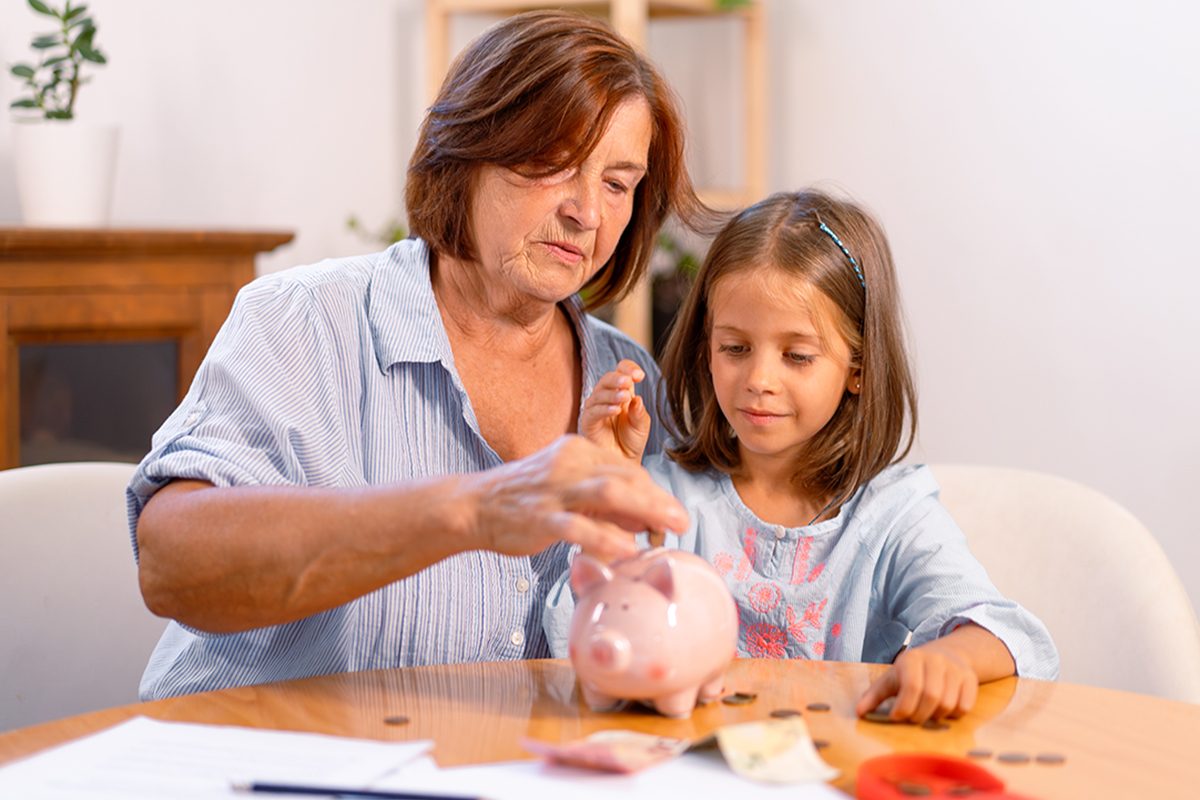
How to Say Grandma and Grandpa in Different Languages

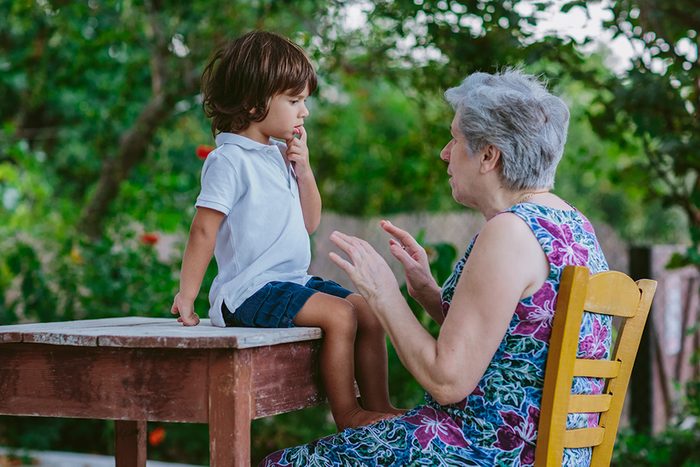
Greek
Location: Greece and Cyprus
Grandma: Yia-yia
Grandpa: Papou
Looking to learn a new language? Add Greek to the list, and start with learning the words for grandma and grandpa. Like many cultures, Greek families hold grandparents in high regard—they’re pillars of wisdom, guidance and love. While the familiar Greek terms are yia-yia (γιαγιά) for grandmother and papou (παππού) for grandfather, some families use unique names based on maternal or paternal sides, like aji and aja for paternal grandparents, or nani and nana for maternal ones.
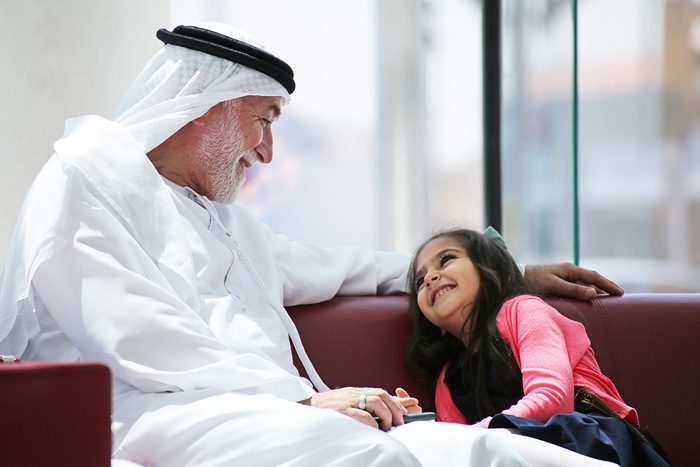
Arabic
Location: Middle East and North Africa
Grandma: Jadda
Grandpa: Jad
Arabic is the official language in various parts of North Africa, including Algeria, Egypt, Libya and Morocco. In the Middle East, it’s the official language of Bahrain, Iraq, Jordan, Kuwait, Lebanon and more. While the formal terms in Modern Standard Arabic are jad (جد) for grandfather and jaddah (جدة) for grandmother, you may hear different words depending on the region. For example, you might hear jiddo and tayta in Syria, geddo and taata in Palestine, or seedo and teta in Lebanon.

Portuguese
Location: Portugal, Angola, Brazil and Cape Verde
Grandma: Avó materna (maternal), avó paterna (paternal)
Grandpa: Avô materno (maternal), avô paterno (paternal)
Portuguese isn’t just spoken in Portugal and Brazil—it’s also the official language of places like Guinea-Bissau, São Tomé and Príncipe, and East Timor. In Brazilian Portuguese, grandparents are lovingly called vovó (grandma) and vovô (grandpa), warm and affectionate nicknames honoring their years of homemade meals and cozy hugs.

Swahili
Location: East Africa
Grandma: Bibi
Grandpa: Babu
In Swahili-speaking cultures, the general words for grandfather and grandmother are simple yet affectionate. But when families want to be more specific, they add a personal touch: babu wa baba for a paternal grandfather, and babu wa mama for a maternal one. Similarly, a grandmother can be called bibi wa baba or bibi wa mama, depending on whether she’s on dad’s or mom’s side.

Japanese
Location: Japan
Grandma: Obaasan
Grandpa: Ojiisan
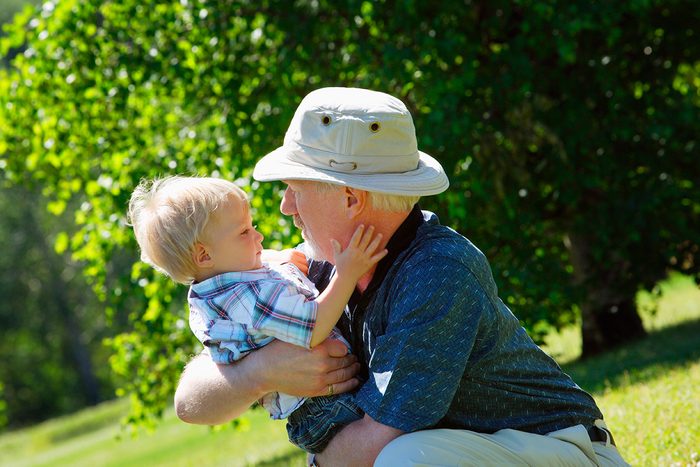
Italian
Location: Italy
Grandma: Nonna materna (maternal), nonna paterna (paternal)
Grandpa: Nonno materno (maternal), nonno paterno (paternal)
In Italy, grandparents are thought of fondly, with Italian phrases that are sweet and familiar. Nonno is grandpa, and nonna is grandma. But if you’re looking to go a branch farther on the family tree, great-grandparents are lovingly called bisnonno and bisnonna.

Swedish
Location: Sweden
Grandma: Mormor (maternal), farmor (paternal)
Grandpa: Morfar (maternal), farfar (paternal)
“In Sweden, it is made clear if the grandparent is on the mother’s side or on the father’s side,” says tour guide Adeodata Czink. In the Swedish language, the maternal grandparents are mormor for grandmother and morfar for grandfather. Paternal grandparents are farmor for grandmother and farfar for grandfather. If you want to get up close and personal with all things Swedish, no need to have a mormor of your own. Lindsborg, Kansas, also known as Little Sweden, is filled with shops selling Swedish crafts, restaurants featuring everything from Swedish meatballs to ostkaka and Swedish festivals.
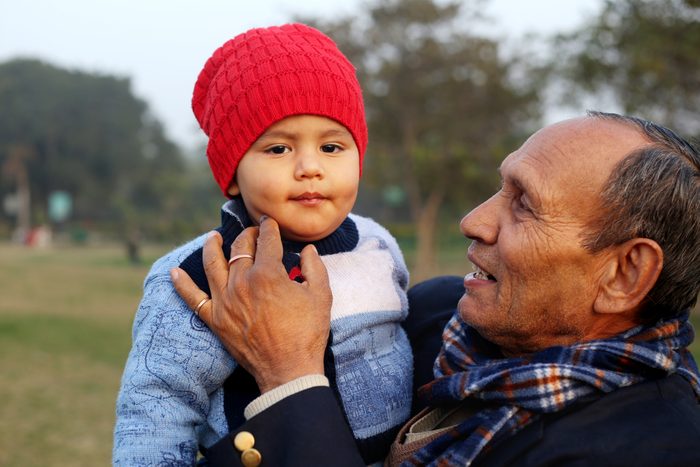
Hindi
Location: India
Grandma: Nani (maternal), dadi (paternal)
Grandpa: Nana (maternal), dada (paternal)
“In our Indian culture, nani is maternal grandmother, and dadi is paternal. Nana is maternal grandfather, and dada is paternal,” shares Lisa Batra, a first-generation Indian, with immigrant parents and two kids of her own. “The origins of these words go back to the ancient Urdu language,” she says. In Telugu, another popular Indian dialect, grandmothers are known as awa and grandfathers as tata.
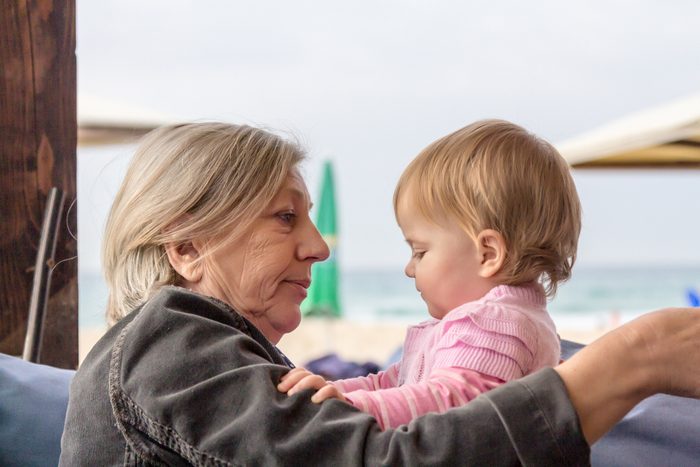
Hebrew
Location: Israel
Grandma: Satva, bubbe, nonna, avuela
Grandpa: Saba, zayda, nonno, avuelo
In the land of milk and honey, grandparents are called by many names. In Hebrew, one of the official languages of Israel, grandma is called savta, and grandpa, saba. Jews with roots in Eastern Europe, known as Ashkenazi Jews, sometimes prefer the Yiddish version, bubbe for grandmother and zayda for grandfather. Sephardic Jews, who trace their roots back to the Iberian Peninsula of the late 1500s, typically use the Ladino terms—nonna or avuela for grandmother, and nonno or avuelo for grandfather. The Peninsula’s proximity to Spain is why the Ladino translation sounds so similar to the grandma and grandpa terms used in that country.
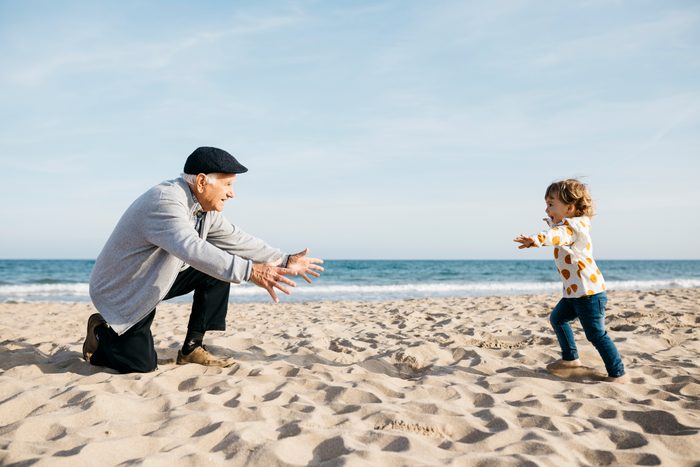
Spanish
Location: Spain, Mexico and various nations in Latin America
Grandma: Abuela, abuelita
Grandpa: Abuelo, abuelito
While almost everyone might know how to say hello in Spanish, what about the right words for your grandparents? In Spain, as in most Spanish-speaking countries, grandparents are most often referred to with the formal titles of abuela (grandma) and abuelo (grandpa). Informal versions are also popular. Abuelita translates into little grandma and is a common term of endearment. For grandpas, abuelito is often used to show great affection.
Grandparents Day in Spain is celebrated on July 26, a day commonly associated with the Feast Day of Saint Joaquin and Saint Anne. These Saints are thought to have been the parents of the Virgin Mary, making them the grandparents of Jesus.
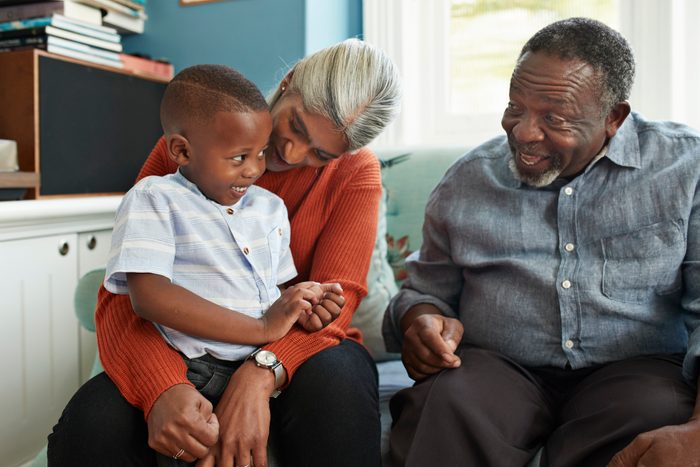
Zulu
Location: Kwazulu-Natal Province in South Africa
Grandma: Gogo, ugogo
Grandpa: Umkhulu
Home to the Zulu tribe of South Africa, the Kwazulu-Natal Province has known its share of hardships as well as joys. Here, grandmothers are often called upon to raise their grandchildren, orphaned by the AIDS crisis. Grandmas are lovingly known as gogo or ugogo in the Zulu dialect. Gogo groups, dedicated to helping children, can be found all over the country. Grandpas of the Zulu tribe are called umkhulu.

Irish
Location: Ireland
Grandma: Maimeó
Grandpa: Daideó
Love all things Irish, including Irish movies? Well, if your grandparents were born in Ireland, you can claim Irish citizenship for yourself, even if your parents have never set foot on the Emerald Isle. That may be one reason why grandparents in this beautiful country have such loving connections to their grandkids. In Gaelic, grandmothers are called maimeó (pronounced mam-o) and grandfathers are called daideó (pronounced dah-jo).
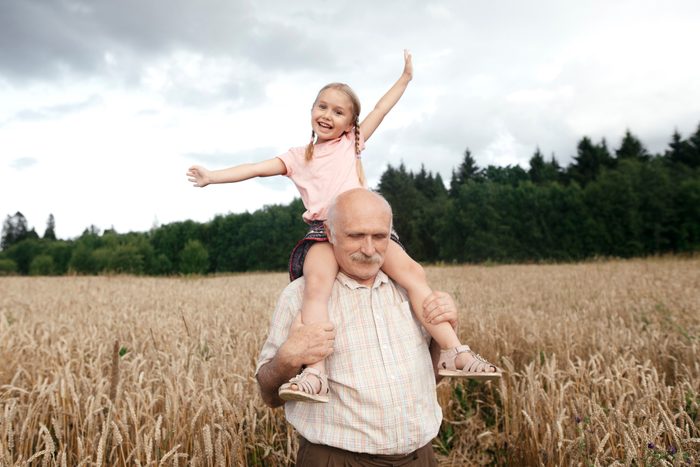
Russian
Location: Russia
Grandma: Babushka
Grandpa: Dedushka
In Russia, a grandmother is typically referred to as babushka, a term that also means old woman. The colorful, light wool headscarves, often worn by women of a certain age in Russia, have also come to be known as babushkas. Grandfathers may not have a head covering named after them in this large northern country, but they are affectionately known as dedushka or sometimes dedulya, a more casual term of endearment.
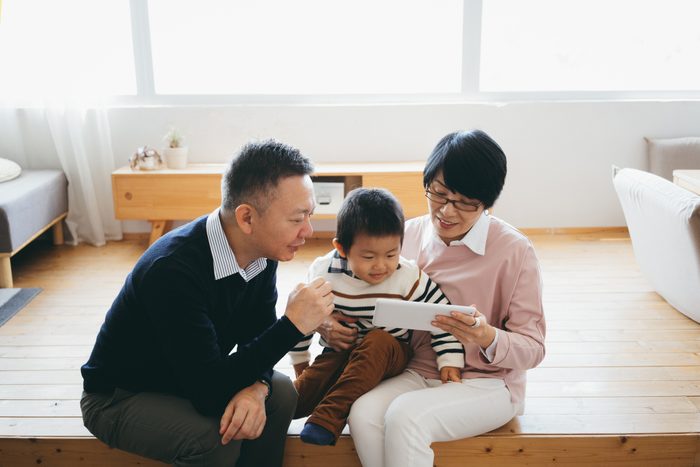
Mandarin Chinese
Location: Mainland China, Taiwan and Singapore
Grandma: Lao lao (maternal), nai nai (paternal)
Grandpa: Lao ye or wai gong (maternal), zu fu (paternal)
In Chinese households, both in the People’s Republic and abroad, grandparents often live with their children and grandchildren. This close, respectful relationship benefits everyone, since the grandparents typically stay home with the children while their parents work. In Mandarin, the official dialect, maternal and paternal grandparents are known by different terms. The formal name for paternal grandfathers is zu fu, but yeye is more commonly used. Maternal grandfathers are known by different names, based on geographic region. In the north, they’re called lao ye. In the south, wai gong. Paternal grandmas are known as nai nai, and maternal grandmas, lao lao.

French
Location: France
Grandma: Grand-mère
Grandpa: Grand-père
The lyrical language of France is apparent in the way children refer to their grandparents. Grand-mère is grandma, and grand-père is grandpa. Mamie has become a popular modern update for grandmother.
According to Cairn Info, the role of grandparents in their grandchildren’s lives has changed over the years. Due to healthy habits and a robust, longer lifespan than was common in generations past, grandparents are better able to play an active, familial role into a more advanced, older age. Grandparents in France are often the ones who provide financial assistance, when needed, to their grandkids as well.
About the experts
|
Why trust us
At Reader’s Digest, we’re committed to producing high-quality content by writers with expertise and experience in their field in consultation with relevant, qualified experts. We rely on reputable primary sources, including government and professional organizations and academic institutions as well as our writers’ personal experiences where appropriate. For this piece on how to say grandma and grandpa in different languages, Corey Whelan tapped her skills as a journalist who often covers lifestyle and family topics. We verify all facts and data, back them with credible sourcing and revisit them over time to ensure they remain accurate and up to date. Read more about our team, our contributors and our editorial policies.
Sources:
- Adeodata Czink, multilingual tour guide; interviewed
- Lisa Batra, first-generation Indian; interviewed
- Babbel: “Other Languages Have Adorable Names for Grandparents, Too”
- Cairn Info: “The Role of Grandparents Today in France”
- Brittanica: “St. Anne”
- University of Washington Sephardic Studies Program: “Key Terms”




















